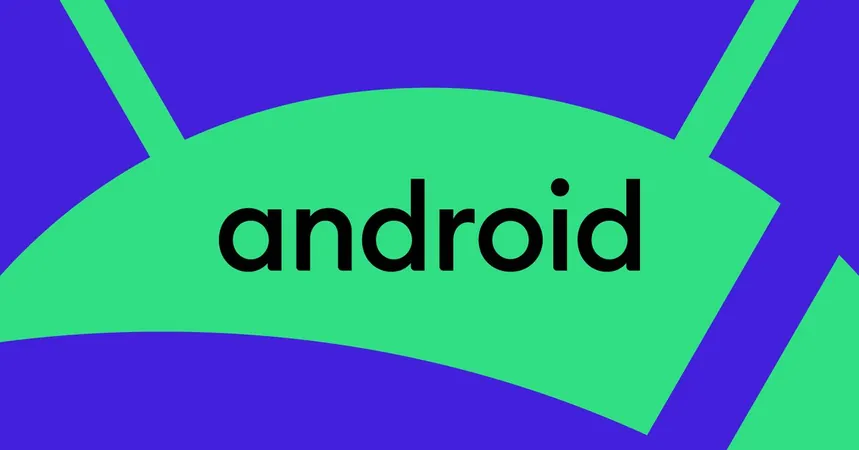
AI Startup Cognition Sparks Fear Among Programmers: Will Devin Replace Coding Jobs?
2024-12-02
Author: Emily
Introduction
In a rapidly evolving tech landscape, 28-year-old Scott Wu and his team at Cognition are pushing the boundaries of artificial intelligence with a groundbreaking coding assistant named Devin, buoyed by a whopping $200 million in funding. Their ambitious goal? To develop an AI tool that can autonomously write code, potentially revolutionizing the software engineering industry.
The Birth of Devin
As the Christmas season approached in 2023, the Cognition team found themselves grappling with a tricky data server setup for Devin. After endless hours of troubleshooting and various failed attempts, they decided to give Devin a shot. To their astonishment, the AI executed a series of commands that seemed almost magical. Despite initial skepticism, Devin's ability to delete an overlooked faulty system file brought the server to life, marking a pivotal moment in Cognition's journey.
Devin's Capabilities
Fast forward to today, and Devin has taken on more responsibilities than ever, managing tasks like identifying and fixing bugs, updating code, and migrating projects between platforms—all with minimal human involvement. Unlike other industry heavyweights, such as GitHub and Codeium, which mainly offer AI-assisted coding suggestions, Cognition’s Devin is designed to complete entire coding projects independently.
Industry Response and Market Growth
Industry giants are taking notice. Google has reported that over 25% of its new code is AI-generated, while GitHub's tool has significantly contributed to Microsoft's revenue growth. The AI coding sector has seen a tidal wave of investment, raising over $1 billion in just the first half of 2024 alone. With predictions of the global AI coding market reaching $4 billion by 2029, varied startups and tech giants are joining the fray, making AI proficiency the new standard for software models.
Concerns for Programmers
However, these advancements come with a looming threat for the programming workforce—especially among the approximately 5 million software developers in America and the 13 million in countries like India and China. Wu maintains that significant job losses won’t occur immediately, arguing that programmers will be needed for more creative and complex tasks beyond Devin's capabilities.
Cognition's Growth
Cognition has quickly gained traction, signing multiple contracts with customers such as Ramp and MongoDB. Its successful funding rounds have elevated its valuation to $2 billion. The potential for Devin to streamline tedious coding tasks could lead to enhanced productivity, but it also raises questions about job security and the future role of human programmers.
Public Perception and Skepticism
The hype surrounding Devin reached a new apex after its launch in March, drawing millions of views on social media and triggering debates among software engineers. Some skeptics argue that the technology may not live up to its promises, citing instances where Devin performed tasks significantly slower than seasoned programmers, even introducing bugs. This has prompted a mix of awe and apprehension within the coding community.
Improvement Through Feedback
Nevertheless, Wu and his team have acknowledged that Devin is a work in progress. They believe the tool has improved considerably through user feedback, with some early users already reporting significant boosts in productivity. Cognition is not resting on its laurels; they continue to explore new functionalities, including the development of supportive AIs to enhance Devin's efficiency. However, these tests revealed that sub-AIs could spiral into a chaotic loop of delegated tasks, highlighting the complexities of AI management.
The Future of Programming
Amidst both excitement and trepidation regarding the adoption of AI in coding, Wu recognizes the strong emotions at play. "There's a lot of fear out there," he notes, emphasizing that many in the industry are grappling with how AI will reshape their roles. While Cognition insists that AI will allow for the completion of more projects, thus creating room for programmers to engage in more meaningful work, the conversation about job displacement and the evolving nature of programming will likely continue to dominate headlines.
Conclusion
As enthusiasts and skeptics alike watch closely, the race to develop the ultimate coding AI showcases not only the technological potential but also the ethical dilemmas surrounding automation in the workforce. One thing is certain: as AI tools like Devin progress, the landscape of software engineering is bound to undergo profound transformations.









 Brasil (PT)
Brasil (PT)
 Canada (EN)
Canada (EN)
 Chile (ES)
Chile (ES)
 España (ES)
España (ES)
 France (FR)
France (FR)
 Hong Kong (EN)
Hong Kong (EN)
 Italia (IT)
Italia (IT)
 日本 (JA)
日本 (JA)
 Magyarország (HU)
Magyarország (HU)
 Norge (NO)
Norge (NO)
 Polska (PL)
Polska (PL)
 Schweiz (DE)
Schweiz (DE)
 Singapore (EN)
Singapore (EN)
 Sverige (SV)
Sverige (SV)
 Suomi (FI)
Suomi (FI)
 Türkiye (TR)
Türkiye (TR)